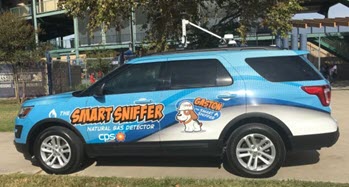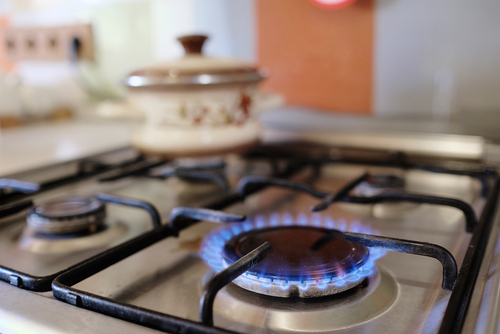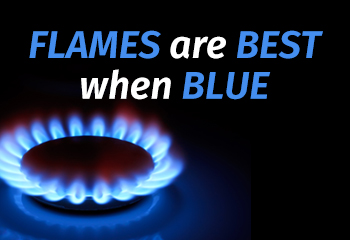Natural Gas Safety
Learn about the safe use of natural gas
Natural gas is delivered to more than 389,000 CPS Energy customers by over 6,000 miles of underground pipelines throughout Bexar, Comal, Guadalupe, and Medina Counties. Even if you don’t use natural gas, pipelines may be located near you.
Before you begin any digging, Texas law requires you to Call 811 (Learn More) at least 48 hours before beginning a project. CPS Energy or other service providers will mark the location of underground gas lines at no cost to you.
If you suspect unauthorized activity either in or near a CPS Energy facility or pipeline, call (210) 353-4357 (HELP).
What should I do if I smell a strong odor of gas (smells like rotten eggs)?
- Get out of the house immediately. Don't turn any electrical switches on or off, or use a flashlight or the telephone. An electric spark from any electric or battery-powered device, or even from static electricity, could ignite a gas leak and cause an explosion. Call (210) 353-4357 (HELP) from a neighbor's house as soon as possible. Never try to locate the source of a gas leak yourself.
What should I do if I smell a faint odor of gas?
- Even if the smell of gas is faint, don't take any chances. Leave the house and call us at (210) 353-4357 (HELP).
Who is Gaston and what is the smart sniffer?
- Gaston is the name we've given our vehicle that is equipped with advanced technology to improve reliability and keep our community safe by helping maintain our natural gas pipelines.
- Gaston also provides quicker inspections and requires fewer resources for routine work. Smart Sniffer vehicle helps reduce wear and tear on our other vehicles.
Should I use my oven to heat my home?
- No, using the oven or range to heat your home can produce dangerous carbon monoxide gas. Carbon monoxide is referred to as the silent killer because you can't smell the fumes, so the results can be deadly. Using the stove as a heating source also can damage the appliance.
What should I do in case someone becomes a victim of carbon monoxide poisoning?
- Carbon monoxide is a poisonous gas, created when a fuel like wood, charcoal, gasoline, propane or natural gas does not receive the proper amount of air as it burns. Symptoms of carbon monoxide poisoning include dizziness, fatigue, nausea, and heart palpitations. Victims should be moved to fresh air immediately and given medical attention as soon as possible, including mouth-to-mouth resuscitation if they are not breathing. In the event of a carbon monoxide buildup, open doors and windows to ventilate the house, then leave as quickly as possible.
What should I know to keep children safe around heaters and pipes?
- Don't let young children use the stove or oven, or touch pipes leading to water heaters or ranges.
What do I need to know to be safe around gas space heaters?
- If you use a gas space heater anywhere in your home, make sure the room in which it is used is always ventilated to the outside. Never sleep in a room with an unvented gas or kerosene heater.
What routine maintenance do my natural gas appliances need?
- Have your natural gas appliances serviced and repaired by professionals. Keep areas around your gas water heater or furnace clean, uncluttered, and free of flammable materials. When purchasing a natural gas appliance, we recommend using only AGA-certified (American Gas Association) appliances. Look for the blue star. Follow all manufacturers' instructions. To ask CPS Energy for assistance with gas pilot lighting, go to Gas Pilot Lighting.
What routine maintenance does CPS Energy perform on their pipelines?
- Safety of our community and employees is a top priority for us. Ensuring the safety of our pipelines is built into our everyday operation. One way of achieving this is through our Pipeline Integrity Management Program (IMP). The primary goal of this program is to continuously improve safety by identifying, assessing and managing risks to natural gas pipelines. Customers also help to ensure safety by calling 911 and CPS Energy at (210) 353-HELP if a natural gas leak is suspected.
Do you have a natural gas safety tip sheet?
- Yes, click here for a copy of the tips (English and Spanish).


